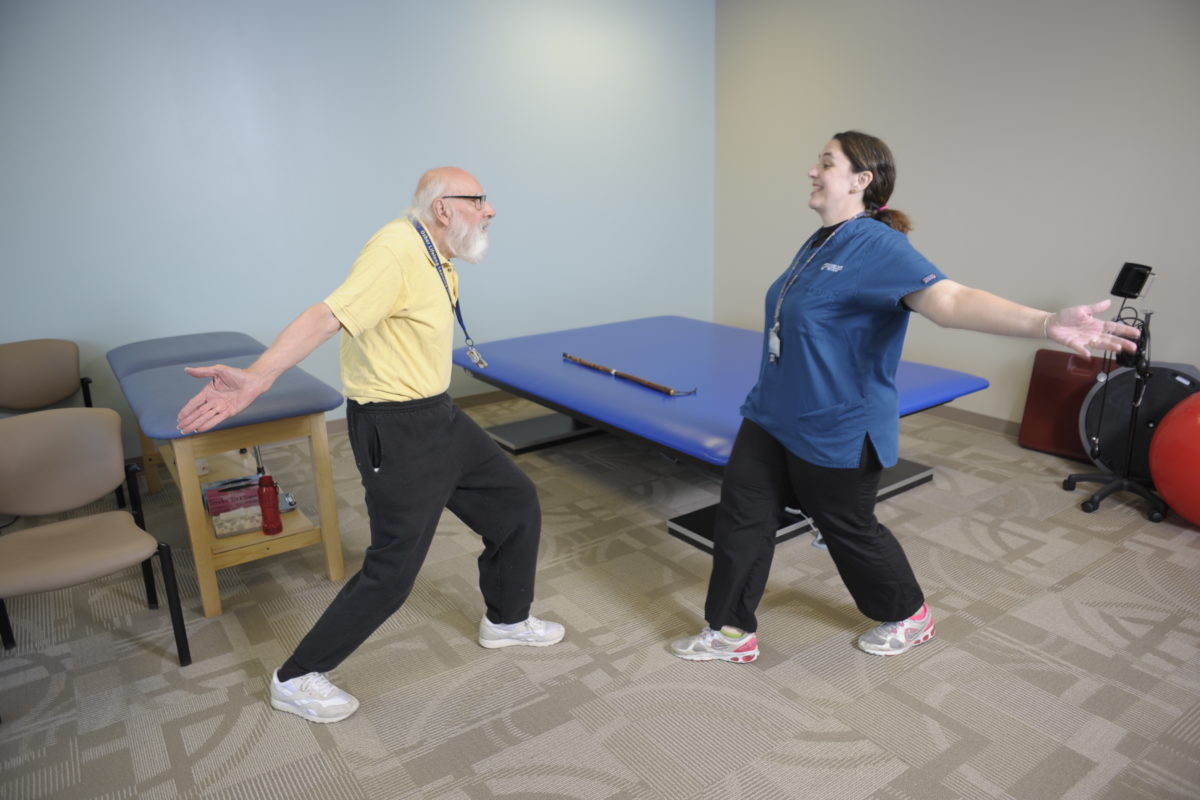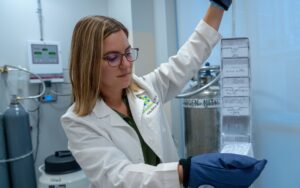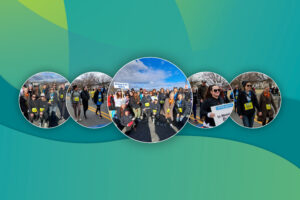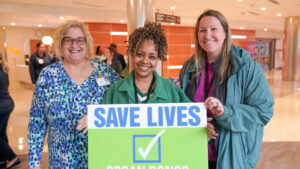Christiana Care Health System therapists have two words for people living with Parkinson’s disease: BIG and LOUD.
These two unique therapy programs are now offered at five locations across the state and at Christiana Care’s Concord Health Center in Chadds Ford, Pennsylvania. Christiana Care also hosts four support groups for people with Parkinson’s and their caregivers.
“The population is aging, and we have more and more of these patients being diagnosed and coming into the system,” said Cathy Kelly, OTR/L, occupational therapy department manager for Christiana Care.
Last fall, she attended a local Michael J. Fox Foundation fundraiser that drew hundreds of people for a pancake breakfast. “It made me very aware how large the community is,” she said. When she returned to work that Monday, she started organizing an educational event to be sponsored by the health system. The Living Well with Parkinson’s Disease Conference, held in May, drew about 115 people with the condition, their caregivers and health professionals to the Christiana Hospital campus.
The event highlighted the therapies offered by Christiana Care, which often yield measurable results in the first hour of treatment.
Christiana Care Rehabilitation Services has nine physical and occupational therapists and 13 speech therapists who work with people with Parkinson’s disease.
The Lee Silverman Voice Treatment (LSVT) LOUD therapy was developed in 1987 to help people with Parkinson’s retrain their brains to strengthen their voices and improve articulation.
LSVT BIG therapy adapted the principles of the speech program to help patients improve their balance and body movements. It consists of seven different exercises administered four times per week for four weeks. Then, patients embark on a comprehensive lifelong home exercise program, returning for re-evaluation on an annual or semi-annual basis.
Both therapies use repetitive, exaggerated exercises to recalibrate a person’s recognition of what a normal movement feels like.
Parkinson’s disease is a progressive disorder of the nervous system characterized by tremor, rigidity of the muscles and a reduction in the size of movements. It also can decrease facial expressions, affect swallowing and reduce intelligibility of speech.
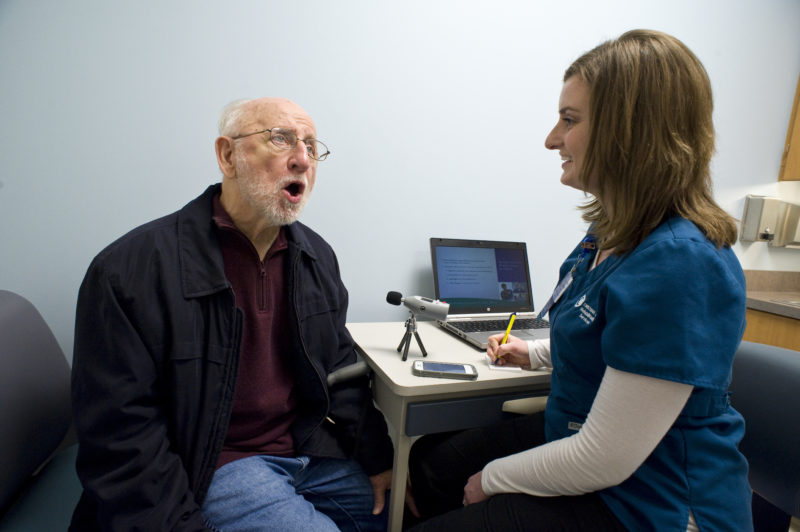
“Everyone experiences it differently,” said Christine Cook, MA, CCC/SLP, who became certified in the LSVT LOUD therapy in 2008 and held a breakout session for health professionals at the conference.
Laurie Scott, OTR/L, spoke to the group of patients and caregivers about the importance of staying active.
“The sooner you get moving, the longer you can stave off the progression of the disease,” she said. “The goal of LSVT BIG therapy is to give you back the parts of your life that Parkinson’s disease has taken away.”
Cynthia Huffine, DPT, a physical therapist certified in the LSVT BIG program, said the therapies work because of the brain’s plasticity. “It is capable of change,” she said.
Huffine also underscored the value of activity, recommending a boxing program designed for people with Parkinson’s disease, tai chi, yoga, dancing, swimming and motion-controlled videogames. Even those who use a wheelchair or who are confined to a bed can exercise, she said.
Bob Klopfenstein, 71, of Wilmington, was diagnosed with Parkinson’s nine years ago. He exercises four times a week and has gone through both the BIG and LOUD therapies.
He also takes advantage of Christiana Care’s support groups. Klopfenstein signed up for the conference, he said, because he wants to stay updated on his condition.
“Sharing ideas is the most important thing,” he said.
